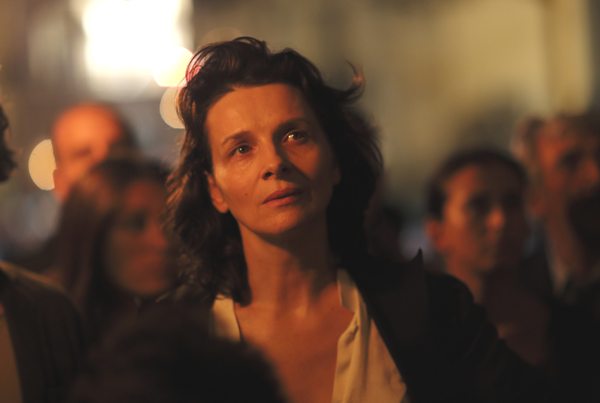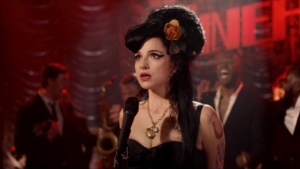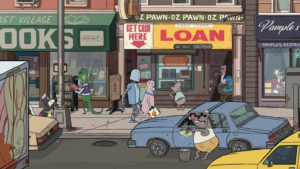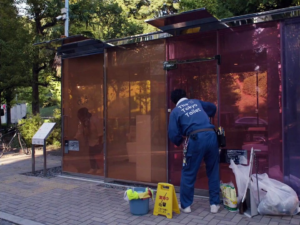Reviewed by GREG KING
Director: Piero Messina
Stars: Juliette Binoche, Lou de Laage, Giorgio Colangeli, Domenico Diele, Antonio Folletto, Corinna Locastro.

This slow moving but lyrical art house drama about a woman who conceals her son’s death from his girlfriend will probably not hold immediate appeal for many audiences.
Loosely based on a play written by Luigi Pindarello, and set in Sicily during a hot summer, The Wait tells the story of Anna (played with great sense of subtlety and poise by Juliette Binoche, from The English Patient, etc) who has just attended the funeral of her son Giuseppe. We don’t know what caused his death. Then she receives a phone call from Jeanne (Lou de Laage), Giuseppe’s estranged girl friend who is hoping for a reconciliation. Jeanne wonders why he hasn’t met her at the airport as he promised. Rather than tell her the truth, Anna invites Jeanne to come and stay at her villa while she waits for him to arrive.
Over the course of the next few days Anna finds herself unable to reveal the truth, instead she gets to know Jeanne and feels closer to Giuseppe. The first encounter between the pair is a little awkward, but eventually develops into a warmer relationship. Will Anna tell Jeanne the truth or will Jeanne learn it herself? And Anna’s actions are patiently watched by her long time friend and caretaker Petro (Giorgio Colangeli), who urges her to tell Jeanne the truth before too long.
The Wait is the debut feature film for Italian filmmaker Piero Messina, who also co-wrote the script with three other writers, and deals with potent themes of death, denial, the pain and anguish of loss, maternal grief, and coping. It is also steeped in religious symbolism. Messina worked as an assistant to Italian director Paolo Sorrentino the visually lush but ultimately dull The Great Beauty, etc), and he has obviously learned a few stylish tricks from his mentor. Everything about the film is meticulously crafted and atmospheric, and the mood is sombre.
Messina employs a minimalist style and measured, deliberate pacing that will not be to everyone’s taste. The film is languidly paced with lots of long, static shots and close-ups and lots of dialogue free scenes that somehow speak volumes and infuse the material with an unexpected intimacy.
This leisurely and understated style of filmmaking perfectly matches the long hot days of summer and the agony of waiting for something to happen. But one can’t help feel that The Wait is a short narrative stretched to breaking point at times. The film is undoubtedly beautiful to look at thanks to the seductive widescreen cinematography of Francesca Di Giacomo (The Eternal City, etc), who gives it a stunning visual surface and captures some great images of the Sicilian countryside. And Marco Dentici’s production design for Anne’s villa is elegant.
It is the central performances that will resonate most strongly with audiences. Binoche finds subtle nuances for her Anne as her emotions play out across her face, particularly her guilt at keeping the secret of Giuseppe’s fate. There is an underlying sadness that adds poignancy to her role. For her part de Laage brings a youthful energy and vibrancy to her performance. This is largely a two hander, and Binoche and de Laage click and develop a dynamic that drives the drama to its understated but effective climax.
While The Wait will resonate strongly with some audiences, it may well prove to be something of an empty experience for those without the patience to sit through it.
★★



